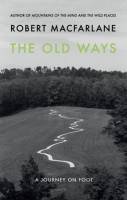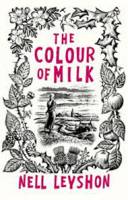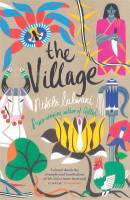It’s been a week since I went to Eastercon (the British National Science Fiction Convention), and I must conclude that it was the best convention I’ve ever been to. Olympus 2012 was my second full Eastercon, and one I was particularly looking to – partly because I knew so many more people there than I did two years ago, and partly because I was signed up to be involved in more.
Probably the most significant event from my point of view was the panel on mainstream-published sf and fantasy, where I took the role of moderator for the first time; joining me were critics Maureen Kincaid Speller and Damien G. Walter, author Nick Harkaway, and publisher Jo Fletcher. I was too busy concentrating on managing the discussion to really judge how it went; but the feedback I had at the convention was positive, and confirmed that we’d managed (as I aimed) to avoid the defensiveness which so often seems to come along in discussions of the subject. I’m glad that people enjoyed the panel; I certainly enjoyed moderating, and am already thinking about possible topics for future panels.
My second event as participant was Niall Harrison’s Fantasy Clarke Award panel, in which I and my fellow-panellists – Nic Clarke, Erin Horáková, Edward James, and Juliet E. McKenna – debated the ‘shortlist’ of UK-published fantasy novels from 2011 that we’d previously drawn up (namely Joe Abercrombie’s The Heroes; Aimee Bender’s The Particular Sadness of Lemon Cake; Kate Elliott’s Cold Fire; Jon Courtenay Grimwood’s The Fallen Blade; Frances Hardinge’s Twilight Robbery; and Helen Oyeyemi’s Mr Fox). After a vigorous hour’s discussion, we had it down to The Heroes and Mr Fox, with Abercrombie’s novel ultimately winning out; which is not a bad result at all, in my view.
What this panel – and the traditional Not the Clarke panel, in which a group of former judges discuss the current Clarke Award shortlist – brought home to me was what a difficult job the Clarke jury (or the judges of any literary award, for that matter) must have in narrowing pools of books down. I might think I’ve reasoned out my opinions on the six novels in advance; but, bring them up against the equally-reasoned opinions of four other people, and it’s clear there is a whole lot more thinking to be done – and probably thinking on aspects of the books which I hadn’t even considered. Tough though it was to agree on which books we’d jettison when (and I’m sure all of us had moments of compromise), the Fantasy Clarke panel was also a rare chance to discuss a set of books face-to-face in some reasonable depth, and I could happily have continued longer. Afterwards, the consensus among the audience seemed to be that we should repeat the exercise next year, and I think it would be great if the panel became a regular occurrence.
It wasn’t all great, of course – not in a weekend which included John Meaney’s spectacularly ill-judged speech introducing the BSFA Awards. There’s nothing I can really add to what has already been said elsewhere across the internet; I was one of the people who walked out, and so missed the actual presentation of the awards. But my congratulations to Christopher Priest, Paul Cornell, Dominic Harman, and the team behind the SF Encyclopedia for their respective wins.
Socially, it was – as ever – great to catch up with familiar faces and meet unfamiliar ones for the first time (whether that’s the first time in person or in general). Those unfamiliar faces included Damien, Edward, Erin, Maureen, and Nick from the panels I mentioned above; as well as Nina Allan, Kev McVeigh, Ruth O’Reilly, Tom Pollock, Gav Pugh, Adam Roberts, and Ian Snell – apologies to anyone I’ve omitted to mention. The fluid nature of social interaction at a convention meant that I didn’t always get as much chance to speak to people as I’d have liked, but I hope that we will meet again in times to come.
My overall sense was of a convention that was great both within and beyond my personal experience of it. The event had that general atmosphere of a lot of people having a good time, whatever their particular interests in terms of programming or guests. I’ve long thought that a mainstream literary festival structured like an Eastercon would be fabulous; and Olympus only confirmed to me what a great format this can be for getting people together to share an interest in books (or what-have-you). I’m already planning to attend Eight Squared Con in Bradford next year; so let me say thank you to this year’s Eastercon committee, and good luck to next year’s!
















 Suzi Feay’s interview with Helen Oyeyemi at the Southbank Centre last night provided a good example of how hearing an author speak about her work can cast new light on a book. After an opening section in which Oyeyemi discussed her love of fairytales as a child, and how she first began writing (crossing out the parts of Little Women that she didn’t like, and writing in her own version—and in a library copy), she read the tale of ‘Mr Fox’ (the English version of Bluebeard), as collected by Joseph Jacobs in the 19th century; followed by the opening pages of her novel Mr Fox, which draws on different versions of the Bluebeard story. Even though I’d already read that book, hearing the author reading aloud from it was almost like encountering it for the first time again.
Suzi Feay’s interview with Helen Oyeyemi at the Southbank Centre last night provided a good example of how hearing an author speak about her work can cast new light on a book. After an opening section in which Oyeyemi discussed her love of fairytales as a child, and how she first began writing (crossing out the parts of Little Women that she didn’t like, and writing in her own version—and in a library copy), she read the tale of ‘Mr Fox’ (the English version of Bluebeard), as collected by Joseph Jacobs in the 19th century; followed by the opening pages of her novel Mr Fox, which draws on different versions of the Bluebeard story. Even though I’d already read that book, hearing the author reading aloud from it was almost like encountering it for the first time again.





Recent Comments